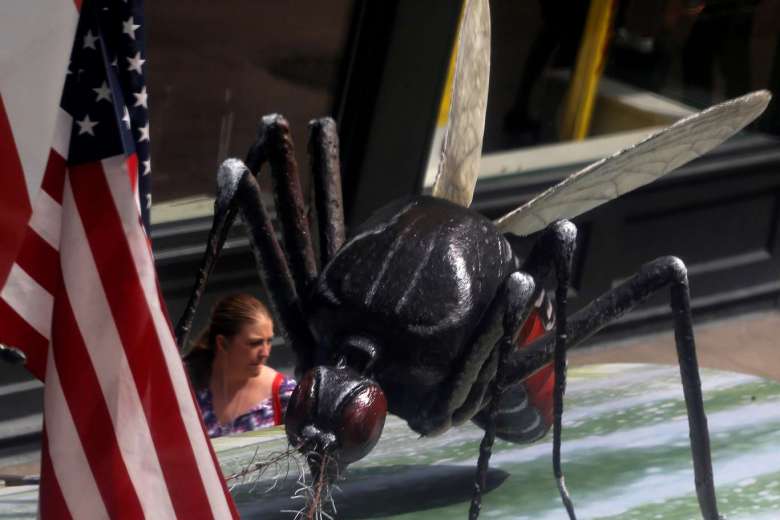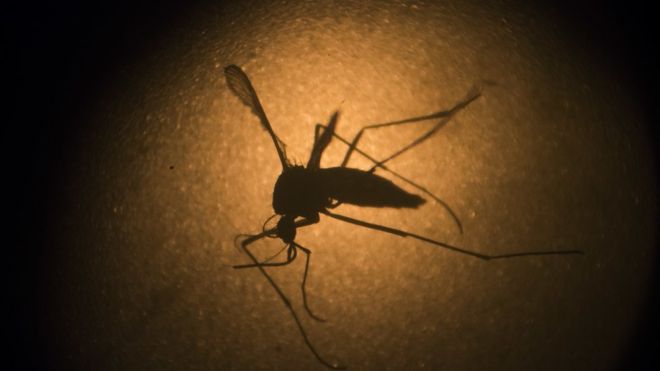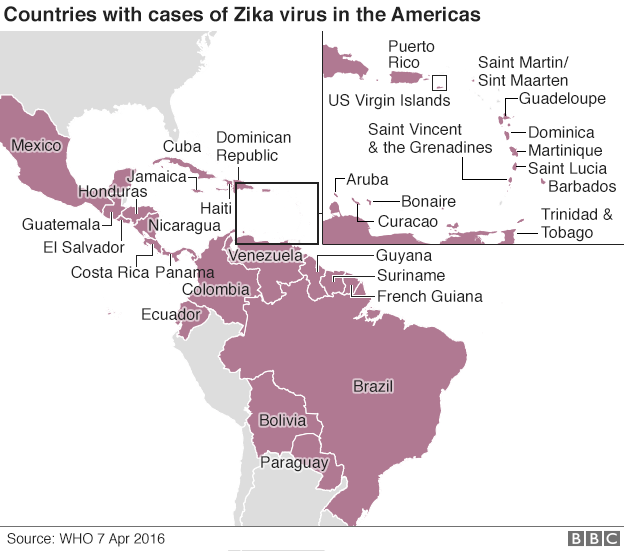Obama pushes for more Zika funding in US

President Barack Obama has criticised the US Congress for failing to back his request for a $1.9bn (£1.25bn) fund to combat the spreading Zika virus.
He warned that the country could face "bigger problems" in the future.
His comments come as the latest figures showed that there were nearly 300 pregnant women in the US who had tested positive for Zika.
The virus is thought to cause serious birth defects. It is spread through mosquitoes and sexual contact.
The World Health Organization has declared the Zika virus a global public health emergency.
It can cause microcephaly, a birth defect, marked by a small head size and can lead to developmental problems in infants.
There have been around 1,300 confirmed cases of microcephaly in Brazil, with thousands more under investigation.
Symptoms of Zika virus include mild fever, conjunctivitis, headache, joint pain and rashes.
Obama's warning
On Friday, President Obama said the Senate had agreed to only half of the required funding, and the House of Representatives only a third.
He said that even this money ($589m) had been diverted from funds earmarked to tackle the threat of Ebola .
"This is not something where we can build a wall to prevent (the spreading of Zika), mosquitoes don't go through customs, to the extent that we're not handling this thing on the front end, we're going to have bigger problems on the back end," Mr Obama said.
Meanwhile, the latest figures from the Centers for Disease Control and Prevention (CDC) showed that 157 pregnant women had tested positive for Zika and another 122 in US territories.
Until now, the agency had not reported the number of women infected by the diseases in the US and its territories.
A Zika-related case has been reported on the French Caribbean island of Martinique.
A regional health agency said on Friday an 84-year-old patient with Guillain Barre Syndrome who had been in the hospital for 10 days died.
Death from the disease is rare and there is no vaccine or drug treatment available.
In Los Angeles, officials are taking prevention measures against Zika after health officials warned that outbreaks could be expected in southern California.
The outbreak began nearly a year ago in Brazil.
The World Health Organization has said Zika virus could spread to Europe this summer.
"Everything we know about this virus seems to be scarier than we initially thought," Dr Anne Schuchat of the CDC said in April.
Политика конфиденциальности | Правила пользования сайтом









